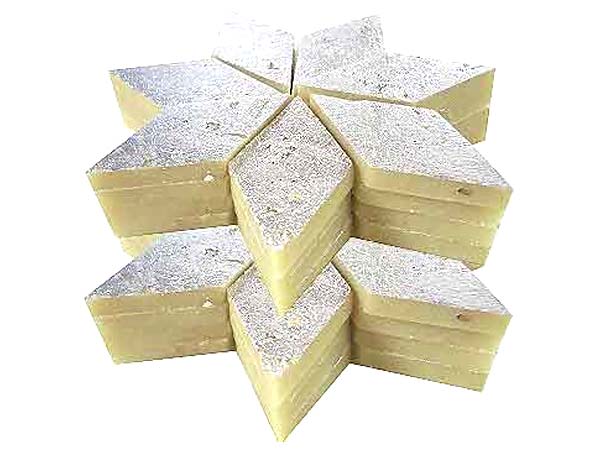Last night Moulana Ebrahim Salejee of Madrassah Taleemuddeen, Isipingo Beach came to Musjid As Saaliheen to give his first talk on the illustrious sahaba, Abdullah ibn Mas'ood. I thought to share a few points I remembered.
1. Abdullah ibn Mas'ood Radhiya Allahu Anhu was a teenager when he first saw Nabi Salla Allahu Alayhi wa Sallam. The first time he saw them, there were only three Muslims at the time: Rasulullah Salla Allahu Alayhi wa Sallam, Khadeejah Radhiya Allahu Anha and Ali Radhiya Allahu Anhu. The were going to the haram to read salaah. A point that Moulana saheb made was that Ibn Mas'ood had mentioned that she was covering her beauty. This showed that with Emaan comes modesty, even though the verse of hijaab had not yet been revealed
1. Abdullah ibn Mas'ood Radhiya Allahu Anhu was a teenager when he first saw Nabi Salla Allahu Alayhi wa Sallam. The first time he saw them, there were only three Muslims at the time: Rasulullah Salla Allahu Alayhi wa Sallam, Khadeejah Radhiya Allahu Anha and Ali Radhiya Allahu Anhu. The were going to the haram to read salaah. A point that Moulana saheb made was that Ibn Mas'ood had mentioned that she was covering her beauty. This showed that with Emaan comes modesty, even though the verse of hijaab had not yet been revealed
2. The second time Abdullah ibn Mas'ood Radhiya Allahu Ta'aala Anhu saw Rasulullah Salla Allahu Alayhi wa Sallam was when he was taking care of the goats of Uqba bin Abi Mueet. Rasulullah Salla Allahu Alayhi wa Sallam was with Abu Bakr Radhiya Allahu Anhu, and they come toward Ibn Abbas Radhiya Allahu Anhu. Rasulullah Salla Allahu Alayhi wa Sallam asked him if he had any milk. Ibn Mas'ood Radhiya Allahu Anhu replied that indeed there was milk, however these goats were an amaanah, a trust.
Rasulullah Salla Allahu Alayhi wa Sallam then asked if there was a baby goat. Ibn Mas'ood Radhiya Allahu Anhu brought forward an small goat. Rasulullah Salla Allahu Alayhi wa Sallam then stroked the udders of this goat and made du'aa, and the udder filled with milk! Rasulullah Salla Allahu Alayhi wa Sallam then milked the goat, whereafter he and Abu Bakr Radhiya Allahu Anhu drank from the milk. After this, Rasulullah Salla Allahu Alayhi wa Sallam ordered the udders to shrink, and they did.
3. After this incident, Ibn Mas'ood Radhiya Allahu Anhu went to Rasulullah Salla Allahu Alayhi wa Sallam and asked him to teach him that which he recites. Rasulullah Salla Allahu Alayhi wa Sallam stroked Ibn Mas'ood's head and told him that he would be blessed with knowledge from Allah. Hence Abdullah ibn Mas'ood Radhiya Allahu Anhu became the sixth person to accept Islam.
Rasulullah Salla Allahu Alayhi wa Sallam then asked if there was a baby goat. Ibn Mas'ood Radhiya Allahu Anhu brought forward an small goat. Rasulullah Salla Allahu Alayhi wa Sallam then stroked the udders of this goat and made du'aa, and the udder filled with milk! Rasulullah Salla Allahu Alayhi wa Sallam then milked the goat, whereafter he and Abu Bakr Radhiya Allahu Anhu drank from the milk. After this, Rasulullah Salla Allahu Alayhi wa Sallam ordered the udders to shrink, and they did.
3. After this incident, Ibn Mas'ood Radhiya Allahu Anhu went to Rasulullah Salla Allahu Alayhi wa Sallam and asked him to teach him that which he recites. Rasulullah Salla Allahu Alayhi wa Sallam stroked Ibn Mas'ood's head and told him that he would be blessed with knowledge from Allah. Hence Abdullah ibn Mas'ood Radhiya Allahu Anhu became the sixth person to accept Islam.
4. Ibn Mas'ood Radhiya Allahu Ta'aala anhu was very close to Rasulullah Salla Allahu, so much so that he was almost like his shadow. He was given permission from Rasulullah Salla Allahu Alayhi wa Sallam to come in the house without permission when the curtain was up. He and his mother were many times thought to be the family of Rasulullah Salla Allahu Alayhi wa Sallam as they had such close proximity with him and his blessed wives.
5. Abdullah ibn Mas'ood Radhiya Allahu Anhu had a student named Alqamah, who was a Taabi'ee. He was so knowledgable that people would only ask him their questions. A person once wondered why people went to Alqamah when there were Sahabah still there to be asked. The response was that who else to ask questions from when Sahabah themselves went to Alqamah for their queries!














